April 29, 2017
Ahmad Rafat (Kayhan-London Exclusive)
At a news conference held on Tuesday 25 April, 2017 in Vienna, Babak Namazi called for the unconditional release of his father and brother, Mohammad Baqer and Siamak Namazi. They are both Iranian-Americans and each one was given a 10-year prison sentence last year on charges of spying for the United States.
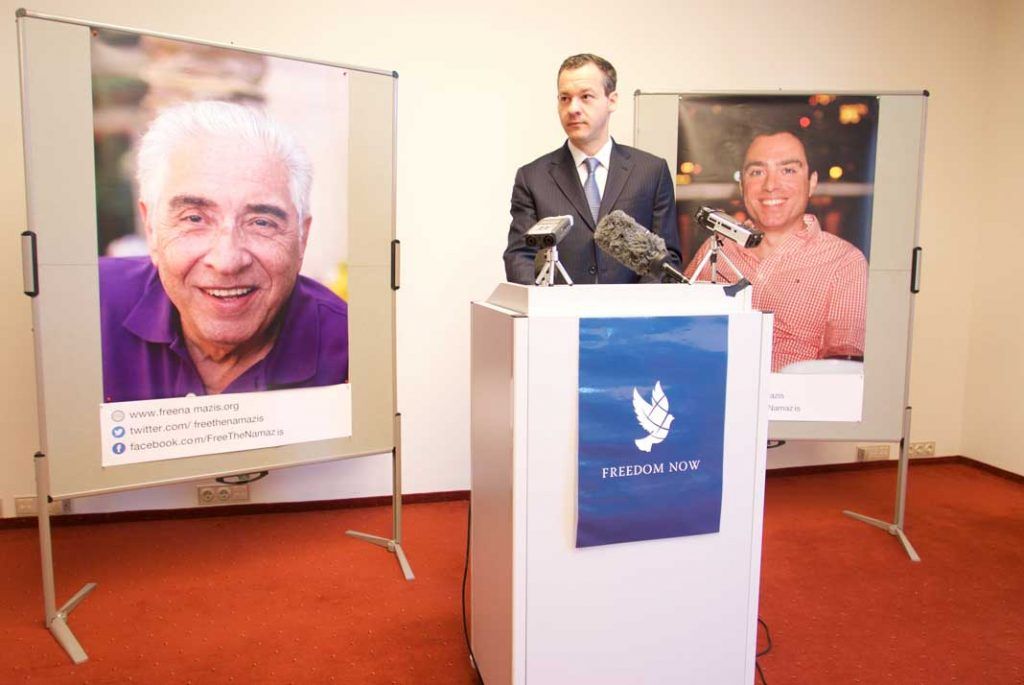
The news conference coincided with the seventh meeting of the Iran-P5+1 Joint Commission held on the same day in Vienna. The commission monitors the implementation of the nuclear deal, known as the Joint Comprehensive Plan of Action (JCPOA), reached in 2015 to curb Iran’s nuclear programme, in exchange for sanctions relief.
In his opening remarks at the Vienna news conference, Jared Genser, the founder of Freedom Now, an independent non-governmental organization that works to free prisoners of conscience, said, “We found out that in their first face-to-face meeting with their Iranian counterparts, the new U.S. delegation plans to discuss the release of Mohammad Baqer and Siamak Namazi, as well as other political prisoners who have been wrongly convicted and imprisoned.”
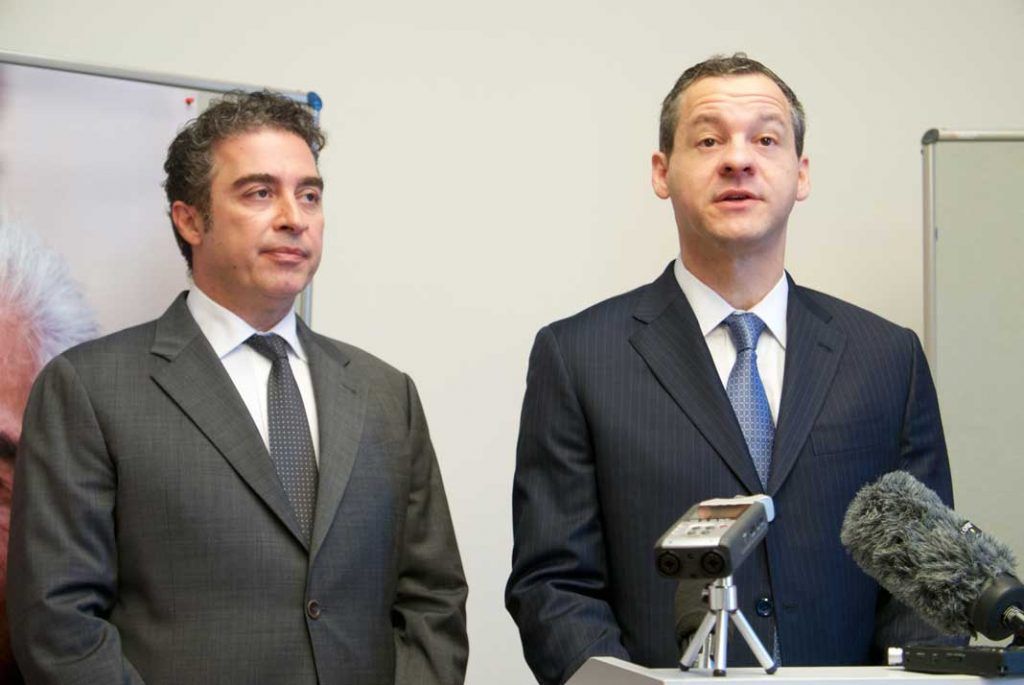
Genser pointed out that in November 2016, then candidate Donald Trump, had mentioned the case of Siamak Namazi, claiming that, “This would not have happened if I was president.” Genser called on President Trump to fulfill his campaign promise to “return Mohammad Baqer and Siamak to their families.”
Genser described the relationship between the United States and Iran as sensitive. He noted, “The failure to secure the release of these two men, and any other adverse development in this case, could further strain the relationship between the two countries.” He highlighted renewed hostilities between Tehran and Washington by citing recent remarks by the U.S. Secretary of State Rex Tillerson who branded Iran “ the world’s leading state sponsor of terrorism.”
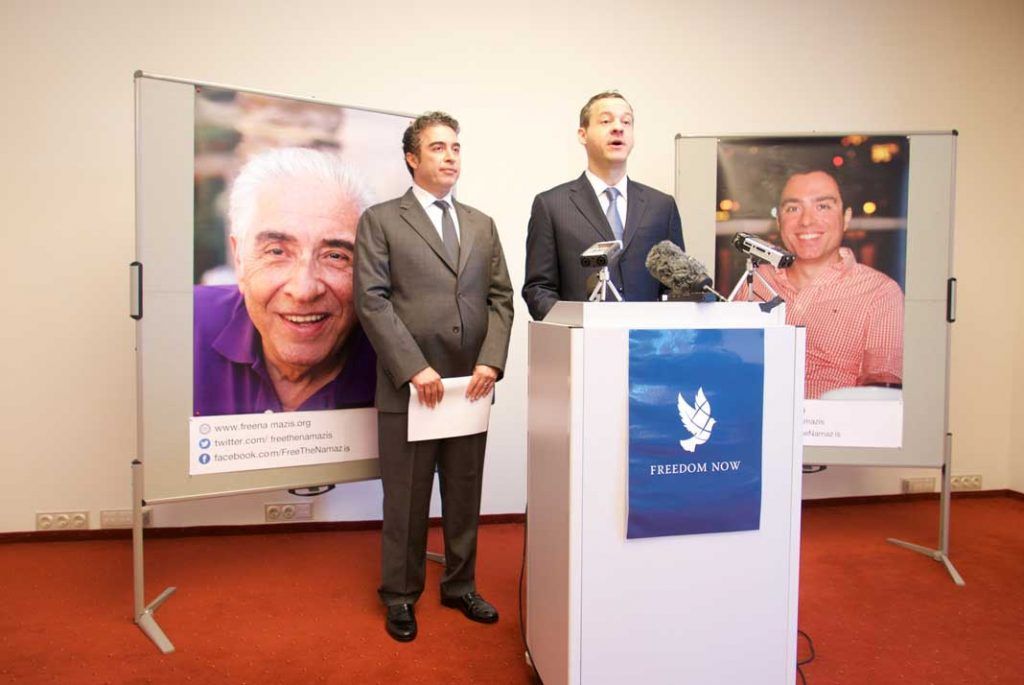
Genser, also referred to comments by the White House spokesperson, Sean Spicer, who on 13 April, 2017 announced that the U.S. had added Tehran Prisons Organization to the list of sanctioned entities. Spicer stated, “These sanctions were approved while many innocent individuals such as Siamak and Baqer Namazi are imprisoned in Iran.”
“The U.S. supports all international organizations and human rights groups which call for the immediate release of U.S. citizens who have been wrongly jailed in Iran,” Spicer said.
The Namazi family and Freedom Now have submitted a 27-page report to the UN Working Group on Arbitrary Detention, asking for help in securing the release of Mohammad Baqer and Siamak. The report points out, “Mohammad Baqer and Siamak Namazi have been imprisoned without any specific charges, and have been convicted without receiving a fair trial. They have not been allowed to get in touch with their families since being arrested, and have not received any medical treatment, putting their lives in serious danger.”
Babak Namazi spoke about the deteriorating health of his father and brother. He said, “I may never see them again, unless something is done about their situation right now.” He called on the Iranian government “to release them as a humanitarian gesture.”
Namazi described the charge of “cooperating with an enemy state” leveled against the two men as unfounded, “My father and brother are true patriots. They love both Iran and the United States.” He said, “They have been working tirelessly to improve relations between the two countries.”
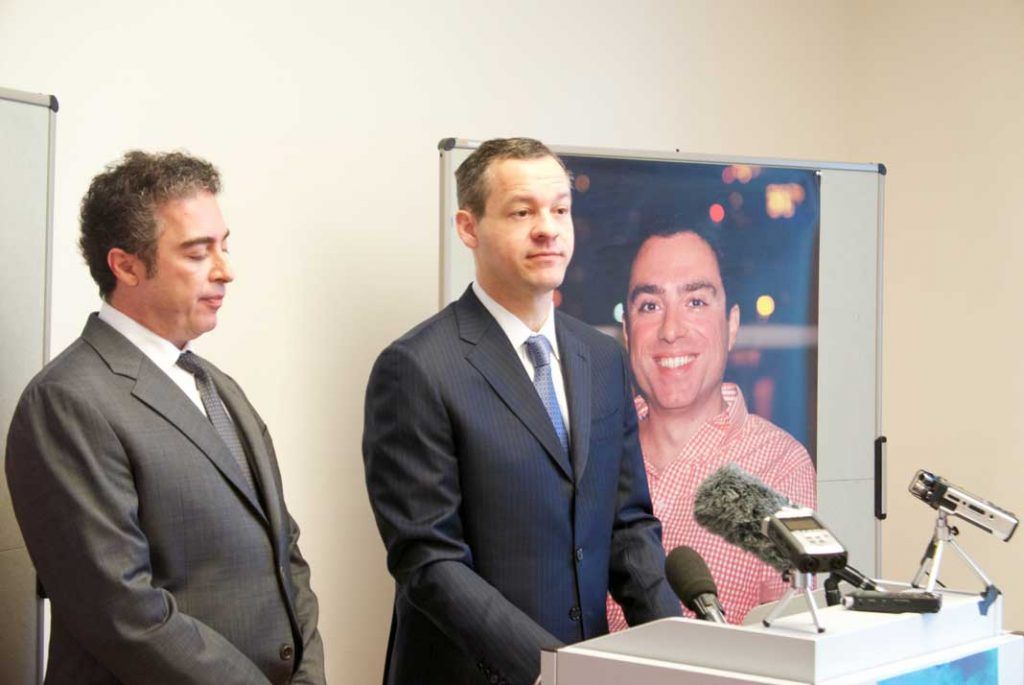
Namazi affirmed that his brother, Siamak, has been tortured repeatedly since his incarceration 18 months ago at Tehran’s notorious Evin prison. He said, “There is no bed in his cell. He is interrogated for long hours under very difficult conditions.”
Namazi is extremely concerned about the health of his 80 year old father who has been sentenced to 10 years in jail. He described the court ruling as “ a death sentence.” According to Namazi, his father has been hospitalized twice, each time for five days in recent months. He added: “We have no information why my father was transferred to a hospital. His medical file has been kept secret.”
Turning his attention to the plight of his brother, Namazi said, “ It is not clear why the Islamic Revolutionary Guards Corps (IRGC) continues to keep Siamak in jail. He continued, ‘The judge in charge of my brother’s case gave me his personal assurance that Siamak was going to be released in a few weeks.” Siamak Namazi’s name was among the original list of jailed Iranian-Americans who were going to be freed in exchange for the release of Iranians jailed in the U.S., following the nuclear agreement.
Babak Namazi disclosed, “Foreign Minister Javad Zarif had promised the U.S. Secretary of State John Kerry that Siamak was going to be released. Unfortunately, that didn’t happen. We don’t know why Iranians didn’t keep their promise.”
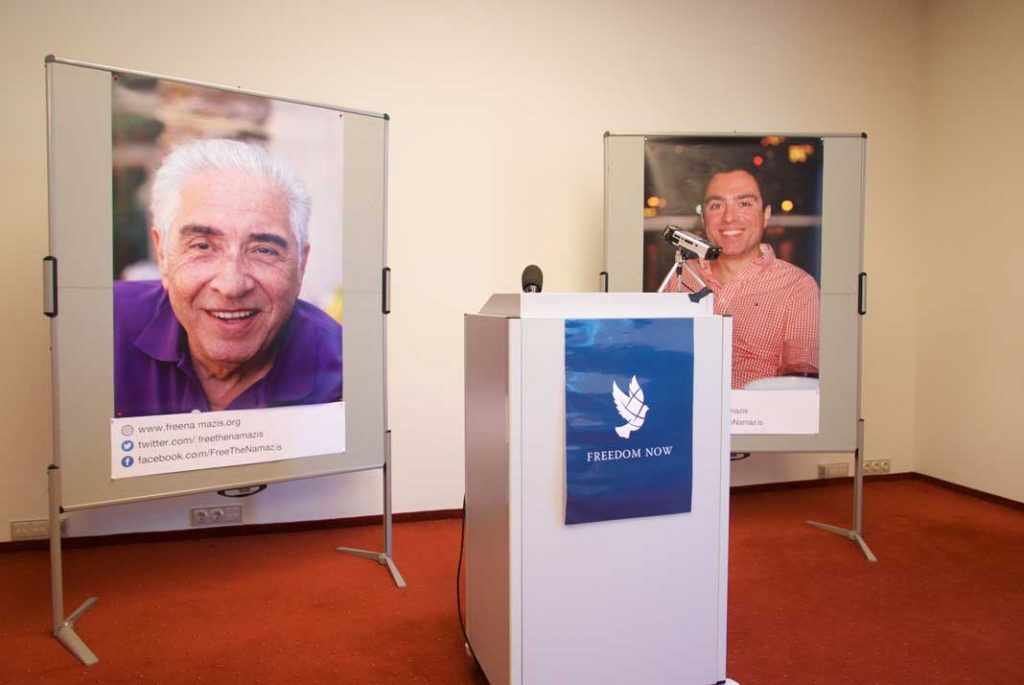
A source close to the U.S. delegation at the Vienna talks could not confirm that the case of Baqer and Siamak Namazi would be discussed at the meeting, but said, “The U.S. government will do its utmost to help its citizens who have been jailed in foreign countries.”
An Iranian source in Vienna described reports about the review of the JCPOA and discussions on the fate of the Namazis as mere “conjecture,” adding, “These issues were not tabled during the meeting at Palais Coburg Hotel in Vienna. They couldn’t be discussed anyway since they had no relevance to the nuclear agreement.”
Iran’s foreign ministry spokesman, Bahram Qasemi, had previously warned that “any attempt to link foreign relations with domestic court cases regarding criminals and spies would be inappropriate and futile.”
Babak Namazi was the head of strategic planning at Crescent Petroleum. He previously worked as an energy consultant at the Dubai-based Access Consulting Group and at numerous think- tanks. Namazi also worked with the Iran-based Atieh Bahar Consulting firm which advises foreign companies on oil contracts. He was arrested at his office in Tehran by the security forces on 15 October 2015.
Mohammad Baqer Namazi was the governor of Khuzestan province before the Islamic Revolution of 1979. In the following years, Namazi worked for UNICEF in Somalia, Kenya and Egypt. He travelled to Iran, hoping to secure his son’s release, but was arrested on 22 February, 2016 and incarcerated at Evin prison.

